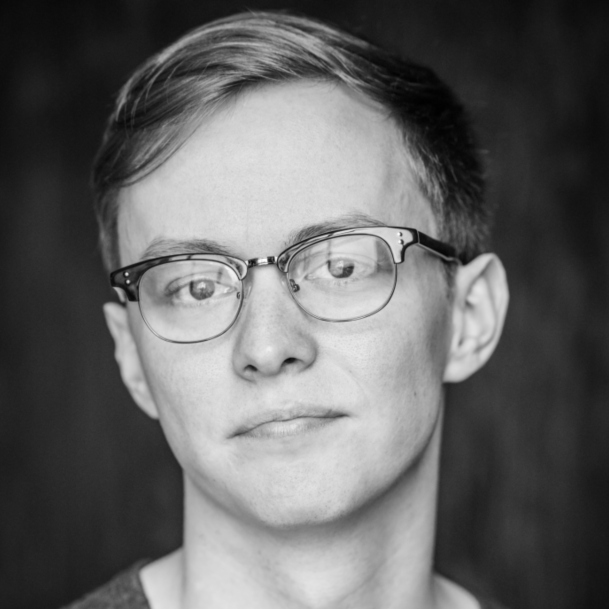Emerging Across Canada: The West
Last summer I graduated from the Playwriting program at the National Theatre School of Canada (NTS). The first few months sans school were utter bliss—I felt like I could breathe again. I made the decision to move back to Edmonton while most of my cohorts moved to Toronto. And I feel great about this choice. I’m crashing in my old room with good ole mom and dad, and engaging with a community I love. Edmonton has a vibrant theatre scene bolstered by one of the largest fringe festivals in the world. It’s incredible for new work and for emerging artists.
Moving back to Edmonton made me wonder what everybody else was doing. What’s it like for emerging artists across the country? Whether still in school, just graduated, or maybe a few years out and unsure if they’d even call themselves emerging, I wanted to find out. This is part one of a series about emerging theatre creators in across Canada, beginning in the West.
First, I would like to acknowledge that all of the locations mentioned in this article are the unceded, traditional, and current lands of the Anishinaabe, Blackfoot, Coast Salish, Cree, Dene, Iroquois, Métis, Nakota Sioux, Ojibway, Saulteaux, and many, many others. This article’s geography spans across several treaties and locations. If you’d like to learn more about Indigenous territories, visit Native Land.
***
Hunter Cardinal is a ᓀᐦᐃᔭᐤ (Nehiyaw) Futurist Storyteller based out of ᐊᒥᐢᑲᐧᒋᐋᐧᐢᑲᐦᐃᑲᐣ (Amiskwaciwâskahikan). Cardinal left the Soulpepper program after a year to come back West. While out East he describes, “I dived into a lot of scholarship/thought leadership around indigeneity and research[ed] more about the shape shifting forms of colonization and colonialism. There’s certain things that I couldn’t unsee about how western theatre is structured.”
His journey out East was illuminating . He described breaking down his notions of home and space. In his research, Cardinal found that, “one of the things I really took to heart [is that] I was told from a scholar I really respect that we as a separate identity. A sovereign people with our own beliefs, that could be eradicated completely within two generations. As an ethnic group we’ll survive, but as a cultural independent and distinct people, we’ll be gone. So I’m left with this idea… if I’m struggling to exist within a pretty violent system… what am I doing to provide an alternative?”

Hunter Cardinal
Cardinal moved back to Amiskwaciwâskahikan and started a company with his sister. Their goal as a company is to incorporate Indigenous perspectives and processes into contemporary systems, and innovate new forms of creation. Cardinal is also currently an associate director for the Edmonton Fringe Festival, and is writing/performing a show that takes much of what he’s learned, to work and put into practice.
Justin Shaw, from Fort McMurray, Alberta, is the Artistic Director for Theatre; Just Because. Shaw explained in our discussion that a big focus in Fort McMurray was using theatre to build up the community and make people realize that “this town is a real place. And by that I mean that it’s not just a place where people work and sleep. It’s not just a place where people are ‘surviving.’”
The recession hurt the Fort McMurray community in 2014-2015, and the devastation of the fire followed in 2016. And Shaw shared a unique characteristic of the Fort Mac theatre community: the two large theatre spaces do not have a dedicated ‘season planner’ and contract smaller companies for the artistic side of their season.

Justin Shaw
Shaw graduated from NTS a year ago. As an AD he offered this advice to other artists: “We know when you’re in the room you’ll do great things. But there’s more to being an artist than just being the room. It’s getting in the room. You gotta fight to get in there. There is so much talent out there and you can’t always expect people to open doors for you.”
Ally Schuurman is a director, a producer, and academic based out of Vancouver, British Columbia. “I don’t have words for it anymore on how tough it is to exist in Vancouver – much less exist while trying to create something,” Schuurman mused. “My answer is four jobs. You start bartering with yourself. What can I start sacrificing from my basic human needs to make this work?”
We talked about being an artist and the labels associated with our careers, “There’s a lot of stuff tailored to this ‘up and coming artist’ category” but she pointed out that eventually the support stops because “you’re supposed to be making money now.” Schuurman spoke about a culture of gateway companies—a “gatekeeper” or “gateway company” refers to a practice where a person or company acts as authority for who’s in or out. Gatekeeping is often linked to problematic exclusionary practices. “There’s three schools that give you jobs,” Schuurman explained. “You go to any professional show in Vancouver, and 80% of the performers and creative are going to have [those schools’] credits in their thing. I didn’t go to one of those places, so what do you do?” But the creativity of fringe festivals and seeing changes in Artistic Direction across the country inspire hope for the future in Schuurman.
S.E. Grummet is a fringe artist and puppeteer who was working out of Saskatoon, Saskatchewan when we spoke. They began the conversation with a warning; “I’m probably not going to paint a very nice picture of Saskatoon because I don’t really see myself here much longer,” they explained, “it’s a very small community.” For Grummet, there is a sense of SK theatre looking inward and being very “protective of Saskatchewan Artists–we only want to hire people in our community. But it keeps our theatre from being diverse” and therefore most stories become about “white, straight, and cis[gendered]” people.
Grummet is a graduate of the acting program from University of Saskatchewan and they talked about some of their experiences auditioning. “A lot of the work I can audition for as a female presenting artist is putting me on stage, putting me in a corset and making me look pretty. And a lot of feedback in university was: be graceful, sit up straight…You look beautiful.” Which ultimately led them to produce and create their own work at fringe – and it’s something they really enjoy. “Doing a fringe tour wrecked me for anything else, the dream is to tour full time.”

S.E. Grummett and Liam Zarillo (Photo of Zarillo by Callie Lugosi)
Liam Zarillo who is a queer theatre artist, poet, and lifelong student based out of Winnipeg, Manitoba. “I love this place,” Zarillo shared excitedly over the phone. “I was born in Winnipeg and I love it for a lot of reasons and there’s a lot of really good and profound work going on. The city is also quite isolated. There are some fantastic rural communities but we are pretty isolated from the rest of the country.” Zarrillo explained that this can lead to a culture of isolation.
Zarillo talked about the Winnipeg fringe which “is the third biggest festival after Edmonton and Edinburgh” and like all fringes it “adds a lot of life to a city, it’s a really great meeting place for Winnipeg.” Although Zarillo noted that it also falls into many of the same pitfalls as other fringes often being highly competitive and sometimes even toxic for shows.
We talked about our responsibility as artists. “I do feel like it is my right and responsibility as a trans person in the theatre community to offer visibility to folks who maybe aren’t getting that kind of representation,” Zarrillo said, “to be a resource to young people. And my goal is to use my little kernel of power (my art) to tell my truth and help people see themselves. Throughout this, I aim to constantly be better.”
Kiana Woo is a Chinese-Canadian performer currently working in Calgary and Edmonton, Alberta, and a graduate of the University of Alberta’s BFA Acting Program. “It’s weird after coming out of the BFA after just graduating,” Woo said, “I’ve spent more time as someone who would notice the arts community in Edmonton and I’ve only just recently moved back to Calgary so I’m just discovering what that’s like…It’s confusing because sometimes you don’t know what you’re doing now that you’ve finished your degree.”
It’s difficult when you look at theatre seasons and you don’t see ‘that change’ everybody’s talking about
Woo reflected back at her time in school, “I know me and my other classmate who’s a woman of colour, and my two other female classmates who are minorities experienced a lot of struggle [in school] in terms of equality of representation.” It’s something she’s noticed in the theatre community at large as well: “I do feel like it’s starting to change but it doesn’t really feel like enough especially when you’re coming out as an emerging performer and you’re trying to find something. It’s difficult when you look at theatre seasons and you don’t see ‘that change’ that everybody’s ‘talking’ about. Sure, the catalyst is sort of there, but theatre companies aren’t fully reflecting that change.”
Finally, I spoke to Judy Wensel who is an theatre director, creator, and performer based out of Regina, Saskatchewan. She recently moved back after graduating from the Directing program at NTS. “It feels really good to be back,” Wensel smiled and said. I asked about what theatre was like in Regina, “There’s less of a ‘theatre community proper’ and more of an inclusive interdisciplinary arts community,” Wensel said. “There’s so much cross-pollination that happens between disciplines. It’s something I really love.”
About a half-hour before our interview, Wensel called me, concerned as she was uncertain if she qualified as an emerging artist. She explained: “I feel like you asking me to do this interview was the first time I considered [that I might not be an emerging artist, at least not in Regina.] I’ve been making work for at least 10 years – from directing, performing, to teaching. But then nationally, that feels really different.” She has a real desire to connect with a wider, national community, while at the same time maintaining the foundation she’s built in Regina. This negotiation came up with almost everybody I spoke to for this piece.
***
Reflecting back on everyone I had the privilege of talking to, we all seemed to be reaching for something we can’t quite name. We’re all at different stages of our careers: deciding to live in different places, following different trajectories, making all kinds of theatre. While there were many regional-specific concerns and observations—from the cost of living in Vancouver, to the aftermath of the fire in Fort Mac—there were just as many similarities. We seem to be striving for diversity, seeking new opportunities, and trying to survive—whatever that means for each unique artist.
For me, that means moving back to the city I grew up in, living with my parents, and working a minimum wage job. Maybe forever. Maybe for a little while. Applying for grants, moving forward, all the while writing through consistent doubts: is what I have good enough? Have I made the right choices? Regardless of what lies ahead, I’m excited to continue this process and explore what other areas and artists feel about theatre and their tenuous status as ‘emerging artists.’










Comments